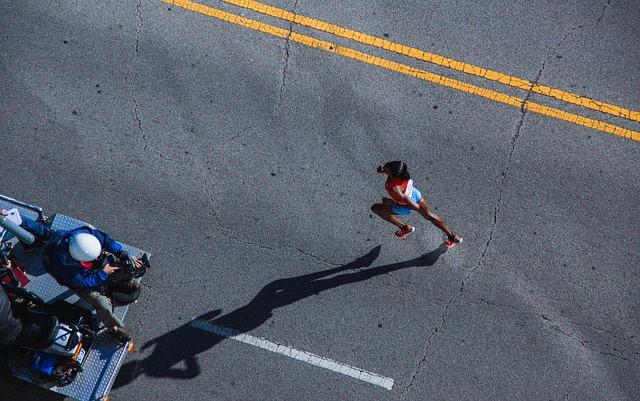In recent years, the exhilarating world of extreme sports has captured the imaginations of both participants and spectators alike, pushing the boundaries of human capability and redefining the limits of adventure. However, as these competitions grow in popularity and prestige, an underlying question emerges: are they becoming overly fixated on the pursuit of victory? This analytical exploration delves into the evolving landscape of extreme sports competitions, examining whether the relentless drive for winning has overshadowed the intrinsic values of skill, creativity, and personal growth that originally defined these daring endeavors. By scrutinizing the motivations of athletes, the role of sponsors, and the expectations of audiences, this article aims to shed light on the potential consequences of an excessive emphasis on triumph, and to consider how the balance between competition and camaraderie can be restored in this high-stakes arena.
The Psychological Impact of Prioritizing Victory in Extreme Sports
The relentless pursuit of victory in extreme sports can have profound psychological effects on athletes. The intense pressure to win often fosters a mindset where success is equated with self-worth, leading to a precarious mental state. Athletes may experience heightened levels of anxiety, driven by the fear of failure and the societal expectations placed upon them. This pressure cooker environment can also lead to burnout, as competitors push themselves beyond their limits to achieve that elusive first place.
Furthermore, prioritizing victory can skew an athlete’s perception of the sport itself. Instead of valuing the intrinsic rewards of participation, such as personal growth and the thrill of the challenge, the focus shifts to external validation. This can result in several psychological consequences:
- Decreased enjoyment: The sport becomes a means to an end, rather than a passion.
- Risk-taking behavior: Athletes may engage in dangerous practices to gain a competitive edge.
- Loss of identity: Their sense of self becomes intertwined with their achievements, making failures feel catastrophic.
To mitigate these effects, a balanced approach is essential, where the joy of the sport and the personal milestones achieved are celebrated alongside competitive success.
Balancing Risk and Reward: The Role of Competition Structures
In the world of extreme sports, the structure of competitions plays a pivotal role in defining how athletes perceive and approach risk and reward. Competition structures that emphasize not just the outcome, but the journey and the skill required, can transform the way athletes engage with their sport. When competitions focus excessively on winning, they may inadvertently encourage athletes to take unnecessary risks, potentially compromising their safety and the essence of the sport itself.
Consider the following factors that can influence this balance:
- Judging Criteria: By incorporating elements that reward creativity and technique rather than sheer risk-taking, competitions can foster a more holistic approach to performance.
- Format Diversity: Introducing varied formats such as team events or time-based challenges can shift the focus from individual glory to collective achievement or personal bests.
- Incentives Structure: Providing recognition for sportsmanship and innovation can motivate athletes to prioritize sustainable and skillful performances over reckless attempts to win.
The recalibration of these elements can ensure that extreme sports competitions remain thrilling yet safe, preserving the integrity and long-term growth of the sport.

Encouraging Personal Growth and Sportsmanship in Extreme Sports
Extreme sports have always been synonymous with pushing boundaries, testing limits, and embracing the thrill of the unknown. However, the intense focus on winning in these competitions can sometimes overshadow the equally important values of personal growth and sportsmanship. In the pursuit of victory, athletes may overlook the opportunities for self-improvement and mutual respect that these sports inherently offer.
To foster an environment where personal development and camaraderie are prioritized alongside competitive success, organizers and participants should consider the following approaches:
- Highlight Personal Achievements: Recognize and celebrate individual progress and milestones, regardless of final rankings. This encourages athletes to appreciate their journey and growth.
- Encourage Peer Support: Create platforms for athletes to share experiences and advice, fostering a community of support and learning.
- Promote Ethical Competition: Emphasize the importance of fair play and integrity, ensuring that the spirit of the sport is upheld.
- Implement Reflective Practices: Encourage athletes to engage in self-reflection and set personal goals beyond winning, focusing on skill enhancement and mental resilience.

Implementing Changes for a Healthier Competitive Environment
In the pursuit of fostering a healthier competitive environment within extreme sports, several key changes can be implemented. Firstly, introducing balanced scoring systems that reward skill, creativity, and consistency over sheer audacity can shift the focus away from high-risk maneuvers that endanger athletes. By valuing a broader range of competencies, competitions can cultivate an environment where safety and mastery are prioritized alongside competitive spirit.
Additionally, promoting a culture of support and collaboration among athletes rather than a sole emphasis on individual triumph can be transformative. Encouraging practices such as:
- Mentorship programs where seasoned athletes guide newcomers.
- Workshops that emphasize injury prevention and mental health.
- Regular feedback sessions with judges and coaches.
This approach not only reduces the pressure to win at all costs but also builds a community focused on collective growth and well-being. By implementing these strategies, extreme sports can maintain their thrilling nature while ensuring the longevity and health of their participants.










